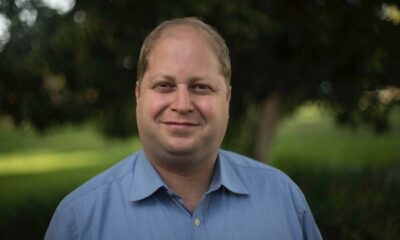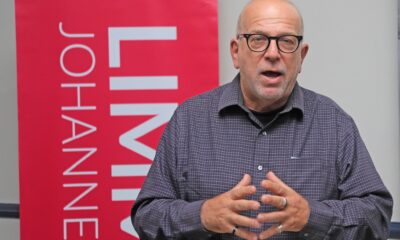
Featured Item

Pushing boundaries for Jewish women
“How are you meant to be a woman involved in Jewish life when you are left out of the central elements of Jewish life?”
This is the question posed by Dr Channa Pinchasi, the director of the Maskilot programme in Israel and an active feminist, to the audience at Limmud Johannesburg.
Pinchasi said it was a challenge and opportunity for our generation to start to take a more leading role while still being able to keep Jewish values and abide by halacha.
“When we get to Jewish tradition, we have to say clearly that women are on the margins of Jewish tradition in a substantive way,” said Pinchasi. Women are left out of four main elements of Jewish culture otherwise known as four houses: the Temple, shuls, the rabbinical courts, and Torah study. However, there are places where women can and should take a leading role, she said.
“The Jewish library misses half of its people. We haven’t been heard, and this is because the Torah says, ‘You should teach it to your sons or children’, but not explicitly to your daughters.”
The best way to look at masculinity and femininity in a culture is to look at the central values and roles in a culture, Pinchasi said. Generally, men adopt the central values and roles, while women are left on the margins. For example, “In the early days of the kibbutz movement, men were the ones working the land, while the women were the ones left in the kitchen,” said Pinchasi.
“The point is that I want to have a full cultural life. So, if I were haredi, I would want to study Torah like they do. If I was a kibbutznik, I would want to work the land and not be stuck in the kitchen,” said Pinchasi. “It’s not about me wanting to be a man, I want to be a part of the culture and my community.
“I have trust in Jewish tradition that it can be changed,” she said. “We have a cultural mechanism that enables us to internalise a new understanding of life and at the same time keep our core Jewish identity.
“It’s our role as Jewish women and feminists today to be active in Jewish culture. We live in a time that our grandmothers thought was impossible.”
Pinchasi said nothing in halacha prohibited women from running the Pesach seder. “Leading the seder is not a halachic thing, it’s a leading role. There’s no reason why a woman can’t lead the seder.”
Women have generally occupied the private sphere, whereas men have occupied the public sphere, she said. The major achievement of the first wave of the feminist movement is that women are now occupying more space in the public sphere, and even in halacha, women can take roles that were assumed to be strictly for men, like running the Pesach seder.
“It’s crucial to understand this mode of thinking, because once you can imagine a woman leading a seder, it will enable girls to go out and lead and it will enable us to have a more inclusive society,” said Pinchasi.
She said that at her daughter’s wedding, her daughter decided to break the glass at the chuppah, and while there was discussion about it, it was never held on the grounds of halacha. “It has nothing to do with actual marriage, but this is the moment when this chuppah becomes public.”
This action wasn’t a problem in terms of halacha, but it was almost seen as a political statement.
Similarly, Pinchasi questioned why women are left out of the public element of mourning such as eulogising at the funeral or saying kaddish. “If halacha has this deep understanding of mourning, then women should take part in it,” she said. “If kaddish is something that respects the dead and life, women should say kaddish.”
Perhaps the only way to integrate feminism into Jewish culture is by pushing the boundaries of what a woman can or can’t do within halacha, Pinchasi said, as “once we speak the language, the Jewish language, we’ll be able to change it”.










